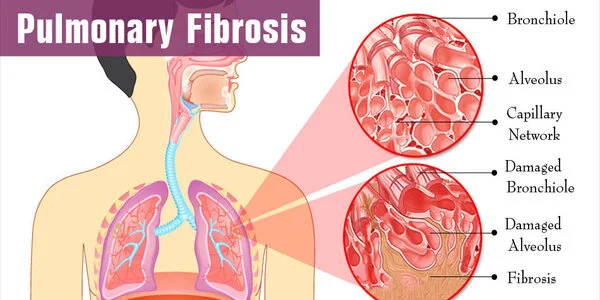Pulmonary fibrosis is a respiratory disorder marked by scarring of the lung tissue. It can cause respiratory problems and impaired lung function over time. Research has demonstrated that bacteria in the mouth may influence the course and survival of people with pulmonary fibrosis.
Bacteria in the mouth may help people survive idiopathic pulmonary fibrosis (IPF), according to a recent study headed by experts at the University of Michigan and the University of Virginia.
The findings come from a larger analysis of the role of the lung microbiome and IPF. Working under the hypothesis that treatment with antibiotics could improve outcomes in patients with the disease, the CleanUP-IPF study includes the collection of cheek swabs and other samples to examine changes in bacterial populations.
Using 16S rRNA analysis and other genetic techniques, the team extracted DNA from the cheek swabs to look for clues. Surprisingly, they found that one bacterial species, Streptococcus mitis, tended to dominate in certain patients with IPF who were not treated with antibiotics.
David O’Dwyer
David O’Dwyer, M.D., Ph.D., of the Division of Pulmonary and Critical Care Medicine at U-M Medical School, partnering with John Kom, M.D. and Imre Noth, M.D., of the University of Virginia and their team, saw an opportunity to also study the role of the oral microbiome in lung disease, as it is now generally accepted that bacteria from the mouth and throat are a major contributor to the lung microbiome.
Using 16S rRNA analysis and other genetic techniques, the team extracted DNA from the cheek swabs to look for clues. Surprisingly, they found that one bacterial species, Streptococcus mitis, tended to dominate in certain patients with IPF who were not treated with antibiotics. What’s more, those patients had better lung function and less severe disease — and ultimately, were more likely to survive.

To date, research has shown that a more diverse set of bacteria in the lungs and in the gut is reflective of better health. That does not hold true for the mouth, however, noted O’Dwyer. Streptococcus mitis tends to act as a gatekeeper toward other bacterial threats, including those that can cause periodontal disease, he said.
The team discovered that oral Streptococcus mitis did not have the same protective connection with IPF in patients who had received antibiotics. Future research will focus on identifying the diverse bacterial populations in the oral and lung environments of IPF patients in order to better understand the relationship between these microbiomes and disease.
This study demonstrates that controlling oral health and lowering dangerous bacteria levels in the mouth may benefit people with pulmonary fibrosis. However, more research is needed to completely understand the link between oral bacteria and pulmonary fibrosis and to investigate potential treatment strategies.
















